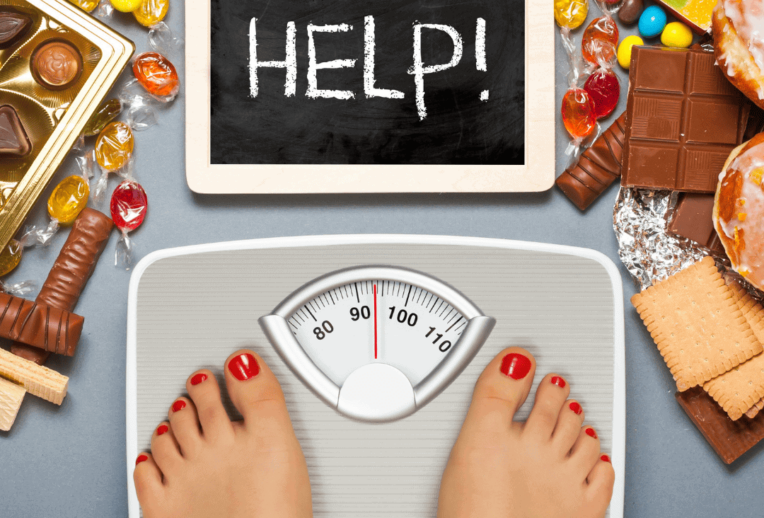Struggling with weight management can be challenging, especially when accompanied by disordered eating patterns such as binge eating disorder (BED). By understanding the unique aspects of BED and implementing a holistic approach, we can foster a healthier relationship with food while promoting sustainable weight management.
What is binge eating disorder
BED is a condition characterised by recurrent episodes of consuming large quantities of food within a short period, accompanied by a sense of loss of control and distress (1). It’s important to recognise that BED is not a lack of willpower or laziness, but rather a complex combination of genetic, environmental, and psychological factors. Addressing BED requires a compassionate and multidimensional approach.
Understanding binge eating disorder
For individuals with BED, weight management can be particularly challenging due to its cyclic nature (2). It is common for binge eating episodes to lead to weight gain, which can trigger feelings of guilt, shame, and frustration. It’s crucial to approach weight management with compassion, focusing on overall well-being rather than solely on the number on the scale. Instead, schedule in essential regular check-ins with your non-scale victories. Celebrating any small or big wins can be powerful in supporting progress, emotional wellbeing and maintaining motivation.
Here are some holistic strategies for BED that can support us with our weight goals
Establish regular and balanced eating patterns:
Develop structured meal and snack times to regulate hunger and reduce the likelihood of triggering binge episodes. Emphasise a balanced approach that includes a variety of whole foods to nourish your body and will keep you full. We love high fibre and high protein foods as they take a long time to digest which can keep us going between meals. Be sure to make the meals tasty too – this element is also key for feeling satisfied and may help to reduce the urge to want to eat thereafter.
Mindful eating:
Practise mindful eating techniques to enhance your awareness of physical hunger and fullness cues. Pay attention to the taste, texture, and satisfaction derived from each bite, fostering a healthier relationship with food. Try to keep away from distractions such as your phone, laptop or TV too.
Address emotional triggers:
BED often stems from emotional triggers such as stress, boredom, or anxiety. Find alternative coping mechanisms such as engaging in hobbies, practising relaxation techniques, or seeking support from friends and family. We love using food and mood diaries or journaling as a source of reflection and to be used for problem solving.
Cultivate self compassion:
Weight fluctuations are a normal part of the recovery process. Rather than fixating on weight, focus on nurturing a positive self-image and embracing self-compassion. Celebrate progress, both small and large, along your journey.
Seek professional support:
Consult with a registered dietitian or psychologist experienced in BED and weight management. They can provide personalised guidance, addressing both the physical and psychological aspects of the disorder. Cognitive behavioural therapy may also be recommended as part of your plan.
Summary
Remember, recovery from binge eating disorder and sustainable weight management take time. Progress is not linear! Be patient and kind to yourself throughout the process. By adopting a holistic approach that addresses both the psychological and physical aspects of BED, you can foster a balanced relationship with food and promote positive weight management practices.
Binge eating disorder and weight management can be intertwined in a complex web of emotions and behaviours. However, by embracing a holistic approach that incorporates professional support, mindful eating, emotional well-being, and self-compassion, you can find a path towards a healthier relationship with food and sustainable weight management. Remember, you are not alone, and there is support available to help you along your journey to improved well-being.
Need extra support?
If you do have binge eating disorder and would like to take a step in the right direction towards seeking extra support, you can book an appointment with the Gut Health Clinic team for individual assessment and tailored advice that suits your current needs and lifestyle.
References
1. Iqbal, A., & Rehman, A. (2022, October 31). Binge Eating Disorder. In StatPearls [Internet]. Treasure Island (FL): StatPearls Publishing; 2023 Jan-. Available from: https://www.ncbi.nlm.nih.gov/books/NBK551700/
2. Kantilafti, M., Chrysostomou, S., Yannakoulia, M., & Giannakou, K. (2022). The association between binge eating disorder and weight management in overweight and obese adults: A systematic literature review. Nutrition and health, 28(2), 189–197. https://doi.org/10.1177/02601060211032101













